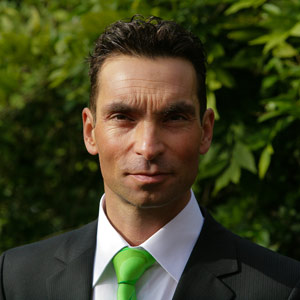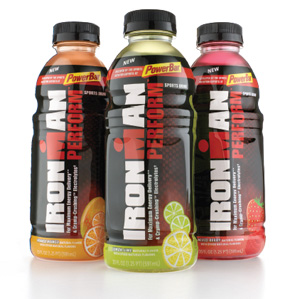Jeukendrup talks to Slowtwitch

Asker Jeukendrup, PhD, is many things—concurrently—which makes him a busy man. He's a Dutchman living in England, the Director of the Human Performance lab at the University of Birmingham. He'll also serve as the newly named Global Senior Director of the Gatorade Sports Science Institute (GSSI).
In his spare time, Asker is a 18-time Ironman finisher, and has several low-10hr Ironman finishes to his credit. He's an avid triathlete at the 70.3 distance as well, and he's Chrissie's nutrition guru.
SLOWTWITCH: The first thing—of course we have to ask!—we want to know is: Are you a Slowtwitcher? And by that we're not talking about whether you're a long distance athlete—we already know you are. We're asking whether you've at some point fallen over the cliff, as have many of your ex phys contemporaries, and into the community of Slowtwitch readers?
ASKER: I am a huge fan of Slowtwitch. So yes, I do consider myself a Slowtwitcher! Anyone who has ever seen me attempt a 100m dash would agree that I am a Slowtwitcher in more than one way! It is interesting that you use a cliff to describe the gap between academia and the real world. It has always been one of my missions to bridge the gap between some of the brilliant science done in controlled but ivory tower laboratories and practicalities for the athlete. How can we translate scientific knowledge into practical advice? This is one of the reasons that I’ve joined the Gatorade Sports Science Institute.
SLOWTWITCH: As an academic, does leading the GSSI allow you to do anything that you otherwise couldn't do? For example, are there subjects you've wanted to study, but the limitations inherent in a university environment may have restricted your ability to do so? Does the GSSI post grant you greater breadth or resources to investigate themes about which you're personally curious?
ASKER: In essence, I think I can continue the research lines I was pursuing. But with a larger team, a more global approach and access to the incredible GSSI facilities, we can take the science to a whole new level. At the same time the abilities to translate this science and to make sure the findings find their way to athletes in the form of nutrition and hydration solutions that they need is much greater than in the world of academia. It will now be possible for me to turn some of these new findings into products that meet the nutrition and hydration needs of athletes. So the impact of what we do will be much greater.
SLOWTWITCH: Speaking, then, of subjects to study, what interests you now? What do you want to know that you don't know, and can the GSSI post help you get to the bottom of it?
ASKER: There are many areas that are relatively underdeveloped and there is still a lot to learn. Although, big steps have been made there is still a lot we don't know about the role of protein. We also don't know much about the interactions between foods or nutrients, the brain and performance. Nutrition influences the adaptation to training. What if we could make this process more efficient? In other words what if there was a way to get one percent more effect out of every training session to improve the overall efficiency of a training program? Over weeks and months that would make a huge difference? There is much, more and there is certainly no lack of important new areas for research. The ambition of GSSI is certainly to be at the forefront of these developments and to be leading the way on a global stage.
SLOWTWITCH: You're Chrissie's nutrition guru. When you came aboard the Good Ship Chrissie, what did you change more: her eating habits off the field of play, that is to say, breakfast, lunch and dinner? Or her nutrition during exercise, including pre- and post-workout and race supplements?
ASKER: Chrissie is one of the most amazing athletes I have ever worked with. I think initially we tackled all aspects and then focused a little more on her race nutrition. Initially nutrition was a big issue and caused her some problems during races. Over time with a bit of help along with trial and error, she has found a strategy that works. I think the danger is that when things work well you don't always appreciate their importance. So, now it is important for her to stick to the plan and not think that she can get away with any less.
SLOWTWITCH: You're a very accomplished age-group triathlete yourself. How good at you at following your own nutritional advice?
ASKER: I am fairly good with following my own advice when it comes to nutrition. I think that is important. If I would not be able to follow my own advice, that would worry me. I know what I advise is possible because I can do it and many others can. Having said that, very often in the last part of an Ironman all the science goes out of the window and it just becomes a matter of survival! I am glad that you did not ask the same question for training. I certainly don't follow my own training advice. My training, unfortunately, is not so structured. It follows a simple rule—train as much as you can when you can. My work and travel schedules are so hectic that a properly designed and planned training program is simply impossible.
SLOWTWITCH: I've got one technical question for you and I'll ask it now. Mark Allen has always maintained that carbohydrate uptake is trainable, and he felt he trained his body to uptake upwards of 600 calories an hour during an Ironman. How trainable is the gut during exercise, and how much hope is there for the mere mortal who uptakes 250 calories an hour?
ASKER: Absolutely! Mark Allen was well ahead of us scientists! There are studies that clearly show that the gut is a very adaptable organ. I have been working with athletes to increase the capacity to use carbohydrates. One session a week should have the goal to train the gut! Take on board at least as much carbohydrate as you would in a race! How many marathon runners never take carbohydrate in training and then show up for their big event and start to use gels and drinks. How many of them then complain about poor tolerance? This then gives them a reason to train another year without gels and drinks! I have called the training where the purpose is to train your gut nutritional training and this should play a role in every endurance athlete's training schedule.
SLOWTWITCH: You're running an institute that's funded by industry. Do you think; do you hope; do you expect or assume that what the GSSI team discovers under your oversight will have a chance to make its way into Gatorade's suite of products? Even if such new products don't easily fit into the typical template of how Gatorade products are distributed and sold? Or, will everything you'll do at GSSI remain entirely separate from the commercial side of Gatorade?
ASKER: Absolutely, in my current position I’ll look to influence the products that are offered to the athlete. Gatorade has a strong innovation pipeline that starts with the G Series Pro line of products, which are designed for elite and professional athletes. Look out for new products from the G Series Pro line and those innovations will eventually appear in the broader base of the Gatorade product portfolio.
It is also possible that GSSI will conduct research to customize nutrition and hydration solutions for specific, individual athletes that may never appear on shelves. This is the next evolution in GSSI’s history of working with the world’s best athletes and providing solution to help them achieve their athletic performance goals.


